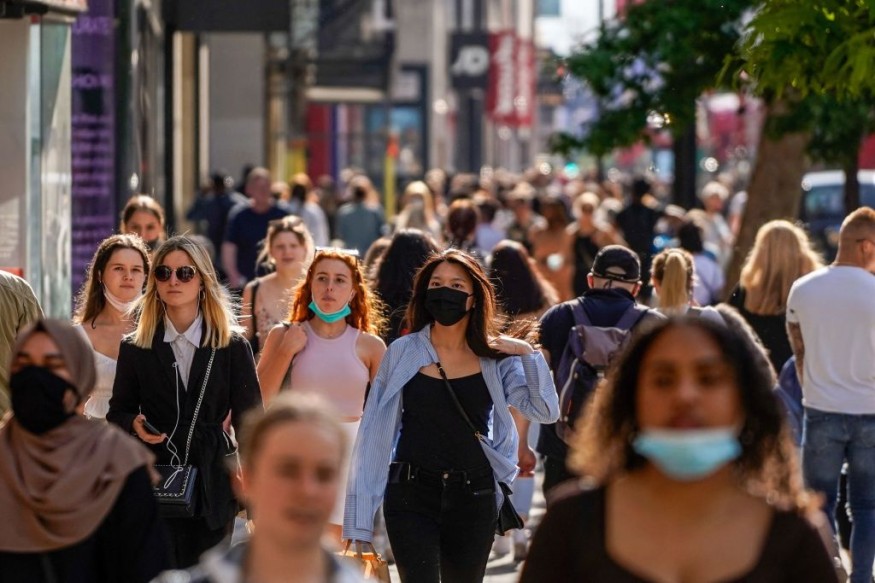While the delta variant of COVID-19 has rapidly become the prevalent strain in the United States, another strain, the lambda variant, is also making the headline after it was recently identified in Peru.
An NPR report specified that the said new COVID-19 strain, aside from Peru, has also started to be detected in several states.
For instance, Houston Methodist Hospital reported its first-ever case of the Lambda variant this week. Researchers at the Medical University of South Carolina announced recently discovered the variant in a virus specimen taken in April.
Based on a database for scientists who track COVID-19 variants, lesser than 700 cases of the lambda variant have been sequenced in the US so far, out of over 34 million COVID-19 cases reported to date.
Nevertheless, the country has sequenced only a small fraction of its case, so that figure does not reflect the actual number of cases of the lambda variant in the country.
Lesser than one percent of the cases in the country during the last four weeks have been identified as the lambda variant, respiratory for genome data, GISAID specified.
ALSO READ : 'Worrying' Mutation Detected in the UK

Is Lambda a COVID-19 Variant of Concern?
The delta variant, which is more than double as communicable as the original variant of the COVID-19, is now accounting for 83 percent of new COVID-19 cases in the US. Essentially, Delta continues to be the primary concern for public health officials.
The lambda variant was originally detected in Peru in August last year, the World Health Organization reported. Cases with the strain have now been traced in 28 countries, GISAID reported, although many of those have identified just a few of the cases of this new COVID-19 cases.
Professor of Medicine, Dr. Stuart Ray, at the Johns Hopkins Hospital, where he specializes in infections disease, opened one of the first COVID-19 wards there in March last year, and he has overseen as well, the hospital's DOVID-19 sequencing initiatives.
Ray explained lambda is "sort of, the alpha variant's cousin," one of the earliest identified variants of concern. This COVID-19 strain spread until it turned to be a prevailing sequence in people who have COVID-19 in Peru.
Last month, the WHO noted an elevated presence of the lambda variant in other countries in South America, including Chile, Ecuador, and Argentina. "And now we know," added Ray, it is present in the US.
Delta vs. Lambda
Lambda variant is carrying a number of mutations with suspected inferences, like possibly increased communicability or potential increased resistance to the neutralization of antibodies, according to the WHO.
However, it says the full extent of the impact of mutations is not yet fully understood and will need more extensive research.
While there has not been clear data, the evidence thus far does not suggest that the lambda variant has any great advantage over the delta variant, explained Ray.
Right now, Delta is dominating, and therefore, the professor said, he thinks his focus can stay on Delta as a hallmark of a highly contagious variant.
Greek-Letter Names of COVID-19 Strain
The WHO has assigned Greek letters to COVID-19 variants categorized as variants of concern or variants of interest.
Specifically, a variant of concern has traits like being substantially more communicable or virulent. The alphabetical order of the Greek-letter names specifies the order in which they were identified as possibly essential; they are not in any specific alphabetical order of severity. The alpha, gamma, beta, and delta strains are considered by the WHO as variants of concern.
As for lambda, the WHO classified this variant last month as a worldwide "variant of interest," a step lower than a variant of concern.
Meaning, it shows genetic changes suspected of impacting its communicability and severity of disease and has been identified as resulting in substantial community transmission or multiple clusters of COVID-19.
A related report is shown on DW News's YouTube video below:
RELATED ARTICLE : "Olfactory Training" Can Help Treat Anosmia in COVID-19 Long-Haulers, Studies Show
Check out more news and information on COVID-19 on Science Times.
© 2026 ScienceTimes.com All rights reserved. Do not reproduce without permission. The window to the world of Science Times.











